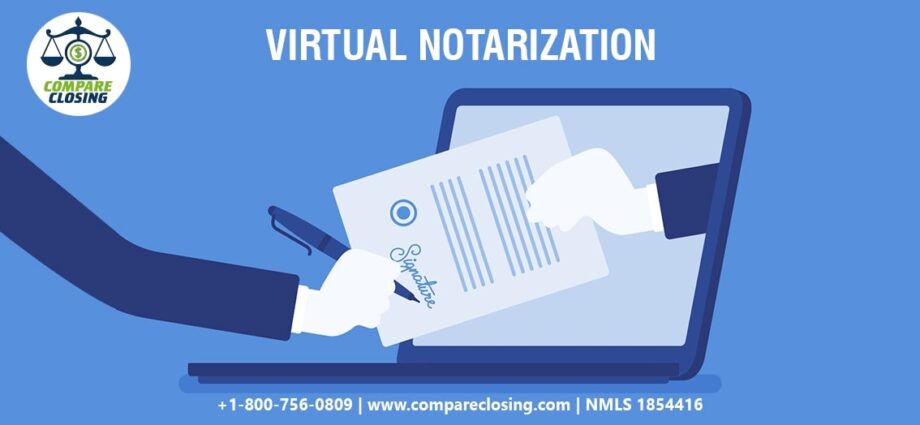Warning: Undefined variable $custom_content in /home4/comcompare/public_html/mortgagenews/wp-content/plugins/code-snippets/php/snippet-ops.php(582) : eval()'d code on line 10
Real Estate closures can happen remotely in most states, a shift that has made most of life online easier during the pandemic. Mortgage lenders are pushing the rest of the states to join, though lawmakers have reservations.
43 states now have laws that permanently allow online remote notarization, supporting virtual closings, up from 22 at the start of the pandemic, according to the National Notary Association.
Seven remaining states — including California, Connecticut, Georgia, Mississippi, and South Carolina — have not passed the bill, although bills are close to becoming law in Delaware, Massachusetts, and Washington, D.C.
During remote closings, homebuyers video conference with lenders, attorneys, and notaries to verify identity. Documents are signed electronically. In a sluggish housing market, mortgage lenders say they are favoring new technology processes, including virtual closings.
“This is not a technological limitation; now we have all the technology to make the perfect digital closing. This is a legal innovation that needs to happen,” said Brian Woodring, chief information officer of Detroit-based Rocket Mortgage LLC.
California lawmakers are working to defeat legislation that would allow remote online notarization. The draft law was approved by the regional assembly this year, but there are still points that hinder its progress in the regional senate.
Assemblyman Frank Bigelow, a Republican who opposed the bill earlier this year, said stakeholders, including some notaries and real estate organizations, have raised concerns about several provisions, including one that would subject out-of-state notaries to strict California regulations. notarization for residents of the state.
“While online remote document verification will benefit California consumers, unfortunately, there are many unresolved issues with scope,” Mr. Bigelow said.
The California Association of Realtors and the California Land Title Association wrote in a letter to members of the California State Assembly that the out-of-state notary provision “violates the longstanding doctrine of interstate recognition” defined in the U.S. Constitution. In addition, other groups oppose a provision in the law that they say makes it easier for anyone to use an online notary platform.
“There have been many attempts at compromise language to appease both sides, but right now we’re in a pattern of holding off until we can do something,” said Assemblyman Reggie Jones-Sawyer, a Democrat. account In Georgia, the state has Rep. Joseph Gullett, a Republican, sponsored two bills that would legalize remote online notarization. They both stood up.
Georgia requires a contracting attorney to be present at real estate closings. Mr. Gullet said this created problems for legalizing remote online notaries.
Local advocates worry that big real estate companies could dominate the foreclosure process from start to finish without Georgians interfering, he said.
When the bill was on the state Senate floor in 2021, Sen. Blake Tillery spoke out against it. Mr. Tillery, a Republican, acknowledged during the interviews that he is the closing attorney himself, adding that he does not believe that would constitute a conflict of interest. Mr. Tillery did not respond to a request for comment.
Another lawmaker who voted for the bill, Democratic state Sen. Elena Parent said, “I feel there is more to learn about this issue and the table gives the proponents and opponents time to work on a possible compromise.”
Fraud can be a risk in any real estate transaction, including remote transactions. There is at least one notable case of remote electronic shutdown fraud.
In 2021, homeowner Mohan Fang sued multiple defendants in Washington state, alleging someone impersonated him and fraudulently tried to sell his Seattle-area property for $900,000, according to court documents.
The lawsuit accuses the notary of negligence, saying the notary did not take proper steps to verify the identity of the seller during the remote notarization process.
At the federal level, the House passed the Secure Notary Act in late July, which allows notaries across the country to perform online remote notarization. The bill now continues in the Senate.
Reference Source: The Wall Street Journal


